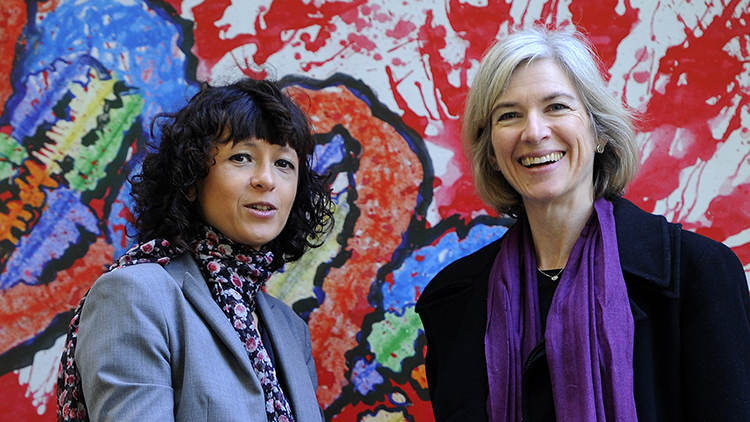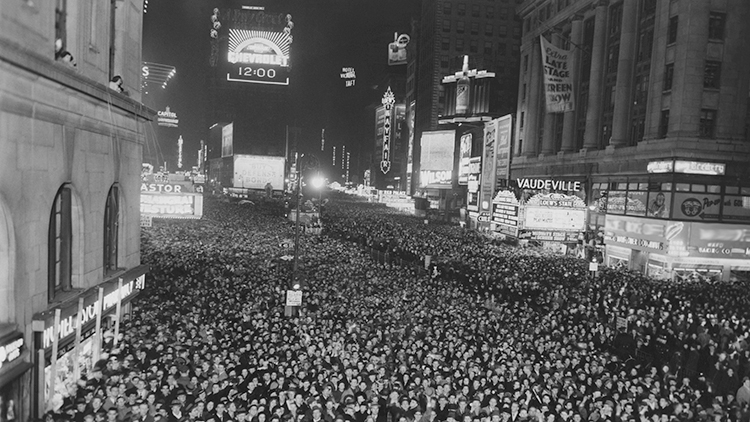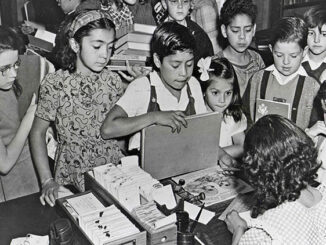
In celebration of Women’s History Month, let’s dive into the work of Dr. Emmanuelle Charpentier and Dr. Jennifer A. Doudna, two women making history in the lab. They won the Nobel Prize for chemistry for a groundbreaking new tool. Their tool is called the CRISPR/Cas 9. It is often referred to as “genetic scissors.” Like their amazing discovery, this pair of female scientists is changing the world!
Dr. Charpentier is a French microbiologist. She studies living organisms that are too small to see. Think bacteria, fungi, and algae! While she was studying the bacteria that causes scarlet fever, Dr. Charpentier noticed some patterns in the genetic material. She knew she needed to partner with an expert who understood how these patterns “talked” to each other in our bodies. She asked Dr. Doudna to be her partner.
Dr. Doudna is an American biochemist and professor at the University of California. She studies the chemical processes that take place in living things. She was studying the same bacteria, so she agreed to partner with Dr. Charpentier.
Together, they learned more about how the bacteria worked. They discovered how the bacteria use genetic scissors to survive in the human body. Mimicking this bacteria’s defense system, they discovered how to slice and dice human DNA. This is the groundbreaking part, just so you know!
Think about it like this: Our bodies come with an instruction manual called DNA. Sometimes there can be “mistakes” in the instruction manual that cause diseases or other issues like allergies. Scientists can now use this tiny pair of scissors to snip out the mistakes. CRISPR/Cas 9 will someday be able to eliminate diseases by erasing them from the instruction manual.
Like many discoveries, this one comes with concerns about how it might be used. Some people worry it will be used for cosmetic change, such as changing the color of a person’s hair or eyes. Others worry about it being used without people’s consent. However, there is great potential for this tiny pair of scissors to snip away some terrible diseases.
What Do You Think? Should scientists “edit” the human genome?
Reading Response Click on this link to respond to your reading. Print out the response page or upload it to your classroom site.
Photo Credit: MIGUEL RIOPA/Stringer/Getty Images



